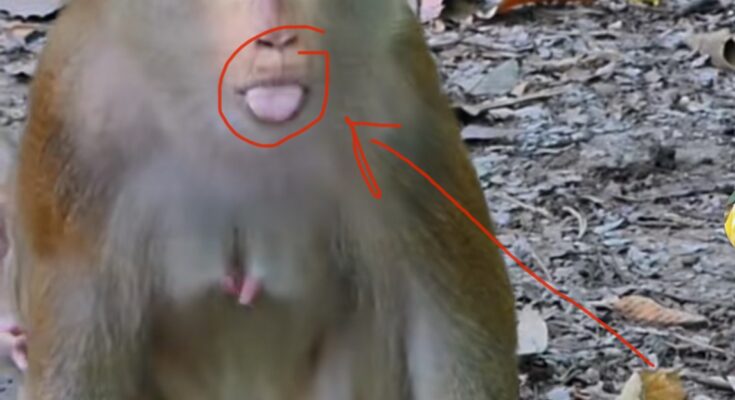The monkey, a healthy adult male from a local troop of rhesus macaques, had been a familiar sight to residents and wildlife watchers. Known for his playful behavior and protective instincts towards younger monkeys, his sudden decline in health drew the attention of animal welfare workers and forest officials.
According to forest department sources, the monkey began showing signs of distress about three days before his death. He was observed isolating himself from the group, refusing food, and displaying symptoms such as shivering, lethargy, and labored breathing. Volunteers from a local animal rescue NGO attempted to capture and treat him, but he remained elusive, likely due to the fear instinct common in wild animals.
Veterinary experts believe the cause of death was a severe infection that led to a dangerously high fever. Without timely medical intervention, the monkey’s condition deteriorated rapidly. A post-mortem examination is underway to confirm the exact cause and to check for any infectious diseases that could pose risks to other wildlife or humans in the area.
Local residents, especially children who had grown fond of the monkey, were visibly upset upon hearing the news. “He was like a part of our community,” said [Name], a resident of the nearby village. “He would often come near our homes, play with the other monkeys, and never harmed anyone. It’s heartbreaking to lose him like this.”
Wildlife experts warn that such incidents are becoming increasingly common as urbanization encroaches upon natural habitats. Factors such as polluted water sources, poor nutrition due to dwindling food supplies, and increased human-monkey conflict all contribute to declining animal health. Monkeys, especially those living close to human settlements, are also at risk of contracting diseases from human waste or contaminated food.
Dr. [Veterinarian Name], a wildlife vet who has worked in the region for over a decade, stated, “Monkeys are highly intelligent and social creatures. When one dies, it affects the entire troop. We’ve observed mourning behaviors, withdrawal, and even aggression in response to such events.”
The incident has sparked renewed calls for better wildlife management and health monitoring systems in semi-urban and rural areas where human-wildlife interaction is frequent. Animal welfare organizations are urging the authorities to implement regular health checks for monkey populations, especially in areas where they are in close contact with people.
As the troop slowly moves on from the loss of one of its leaders, the tragedy serves as a stark reminder of the delicate balance between nature and modern life — a balance that requires urgent attention if more such losses are to be prevented in the future.



